25 years of EUFIC
Misinformation in the food and health space is not a new challenge. When EUFIC was founded in 1995, a time prior to mainstream access to the internet, it was to help address this very problem. The gap EUFIC was set out to fill was that of an impartial organisation that makes science about food and health issues more accessible and easier to understand among the public.
Our vision of a world where people live a healthier life because they know how to has been our compass ever since. Our ways to work towards our mission however have evolved, driven by our ambition to stay at the forefront of content formats and routes to reach people.
Travel with us across 25 years of EUFIC, and be awed at the different stages of our journey, as remembered by our Director General, Dr Laura Fernández Celemín
A history of EUFIC
In its early days, EUFIC’s mission was ‘to provide opinion formers (such as food information institutes, consumer associations, governmental authorities, health professionals, teachers, and media alike) clear, scientific and directly comprehensible information in order to improve the comprehension of matters related to nutrition and health, food safety and quality and other subjects in connection with food, for the benefit of the consumer’.
How has EUFICs mission changed over the years?
In the course of our history, these were the main changes to our mission:
- Broadening our target audiences to include the general public – as we came to realise that with the development of technology (internet, social media), we were able to reach directly the public with our materials. Now, our primary audiences are both the general public and multipliers, with a focus on healthcare professionals, educators, media and science communicators.
- Adding lifestyle to the equation – as research showed that both diet and lifestyle pave the way to better health.
- Including sustainability – as it is paramount for the healthiness of the people and the planet.
- Acknowledging that ‘engagement’ is key for making science understandable but also to inspire change in behaviour. Our materials adapted to the changes in which people consume information – we made them shorter, more visually appealing, very accessible and actionable.
Reflecting the over 25 years of experience in our work, and taking stock of the ever changing scenario our food systems develop in, EUFIC’s current mission is ‘to provide engaging science-based information to inspire and empower healthier and more sustainable food and lifestyle choices’.
We continue to be inspired in our work by our vision, a world where people live a healthier life because they know how to.
Here the EUFIC history in a nutshell:
- 1995 – 2000: Birth of EUFIC as an internet pioneer
- 2001 – 2005: EU research & engagement of kids
- 2006 – 2010: EUFIC grows – More scientific publications, partnerships & multimedia
- 2011 – 2015: Stronger consumer focus: Outreach activities & social media
- 2016 – 2020: Consumer-friendly content in a fast-changing environment
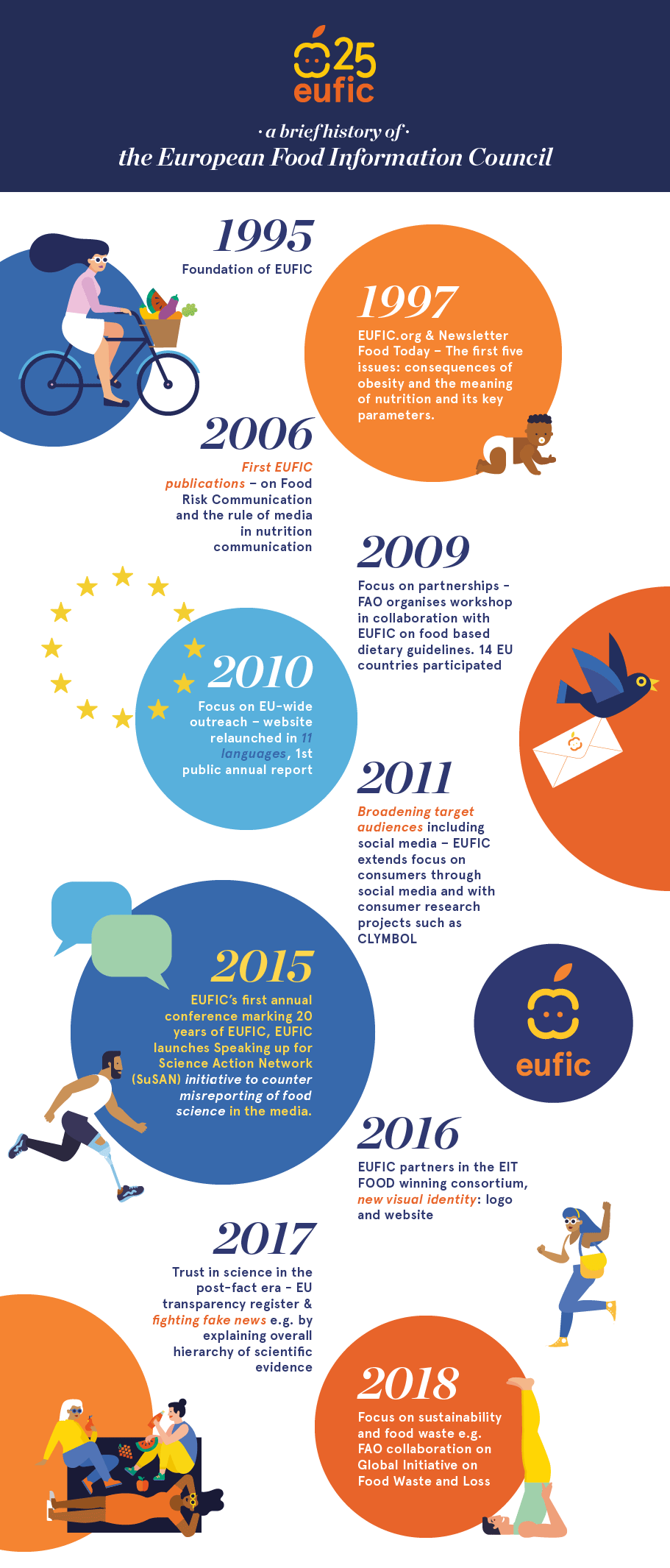
1995 – 2000
Birth of EUFIC as an internet pioneer
In 1995, EUFIC was founded to help address the growing challenge of misinformation in the food and health space. The ambition was to help people make better choices with regards to their diet by increasing and improving public knowledge on food and health topics. EUFIC was designed as an impartial actor, who communicates science-based information about food and health issues in a way that is easy to understand for lay audiences.
Back then EUFIC had no online presence and consisted only of one person – the first director Anna Jung, who led EUFIC until 2005.
From the start EUFIC dealt with food and health as well as food safety and quality topics like carbohydrates, fats, food safety standards, food additives, etc.
In 1997 EUFIC became a pioneer of food information on the internet, with at that time only about 1 million websites online across the world, and EUFIC was one of the first ones providing sound information on food.
EUFIC also developed its first newsletter Food Today, which was then in print. The first five issues of the newsletter dealt with consequences of obesity and the meaning of nutrition and its key parameters.
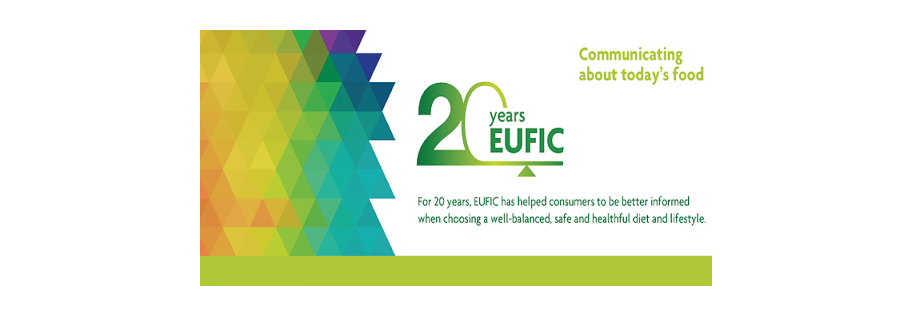
2001 – 2005
EU research & engagement of kids
EUFIC expanded its target audience to include children in 2001, with the webpage CoolFoodPlanet.org, a fun interactive learning tool for children.
In 2004, EUFIC started its first EU-funded research project, SAFE FOODS (2004-2008), with the aim to improve food safety management and transparency.
In the spirit of trustworthiness, EUFIC obtained the HONcode certification in March 2004. Health On The Net (HON) is a non for profit organisation that promotes transparent and reliable health information online.
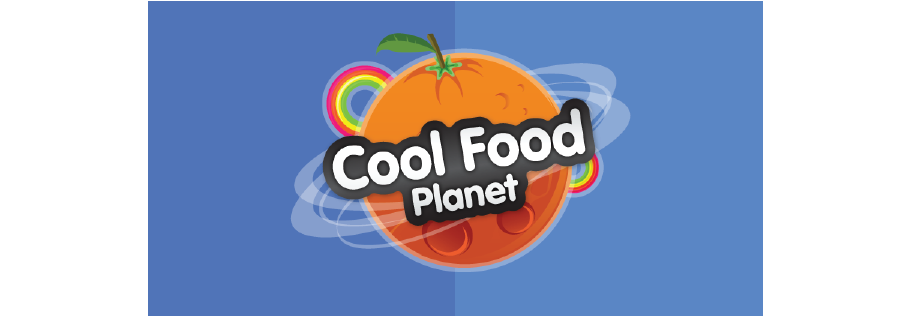
2006 – 2010
EUFIC grows – More scientific publications, partnerships & multimedia
In 2006, Dr Josephine Wills started as EUFIC director, and led EUFIC until 2014.
In the same year, EUFIC joined the EU Platform for Action on Diet Physical Activity & Health, a forum for European-level organisations.
Until then, EUFIC content had been presented in the form of classical articles and newsletters, but in 2006 we produced the first EUFIC multimedia content through podcasts and webinars.
2006 was also the year EUFIC published its first scientific publications:
This publication deals with the requirements for food risk communication research, explaining the take home lessons from past food risk communication topics and how food safety issues vary from culture to culture. It sums up the output of an academic workshop organised by EUFIC, with main academics in the field, to address this issue.
A summary can be found here.
This article covers the challenges of communicating science to the lay public, such as the diversity of consumer audiences, their need for clear messages, the different agendas of all the communicators, and the inherent complexity of the scientific message. It also addressed the role of the media and scientists in bringing scientific communication to the public and how this could be improved.
In 2007 EUFIC publishes its first Global Update on Nutrition Labelling and coordinates the EU-funded project FLABEL (Food Labelling to Advance Better Education for Life).
To help people understand how energy balance works in practice, EUFIC created an interactive online energy balance tool in 2008.
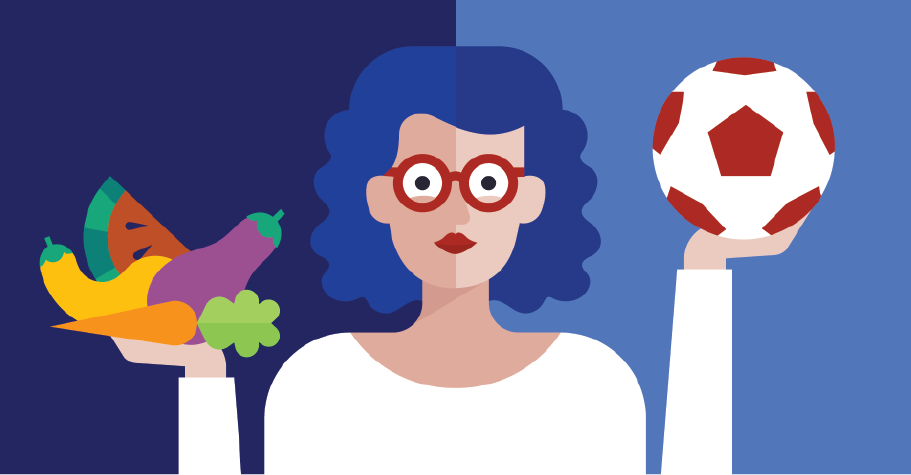
In 2009 EUFIC’s focus was on partnerships, as for example a workshop organised in collaboration with the Food and Agriculture Organization of the United Nations (FAO) on food based dietary guidelines. 14 EU countries participated.
In order to reach more people in the whole EU, EUFIC re-launches its website in 11 languages in 2010. In the same year, EUFIC published its first Annual Report.
2011 – 2015
Stronger consumer focus: Outreach activities & social media
2011- 2012
EUFIC continued its efforts to reach more consumers, leveraging the potential of social media channels. In September 2011, the EUFIC Facebook page was launched as the first of EUFIC’s social media channels.
In 2012, Twitter and YouTube accounts followed, as well as a new version of the CoolFoodPlanet.
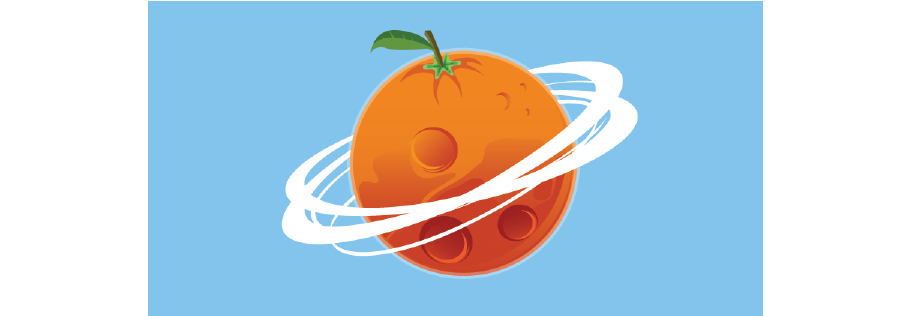
But not only the means of communication became more consumer focused, the content did as well, with topics such as health claims and key food risks.
In 2012, EUFIC started coordinating the EU-funded CLYMBOL project, which aimed to understand better the effects of health claims and symbols on food labels on people’s purchase and consumption behaviour.
In 2013, to connect with nutrition and health professionals EUFIC launched its LinkedIn page, another social media platform joined the ranks of Facebook, Twitter and YouTube.
Next to the EUFIC homepage, also the CoolFoodPlanet webpage for children received the Health On the Net code certification.
With 13 different EU-funded research topics in 2013, EUFIC tackled topics such as obesity in Europe, e.g. with the outstanding MyNewGut project (gut microbiome leading effort at EU level), and sustainable aquaculture.
But EUFIC also focused on the connection to professionals in 2013, through the four EUFIC coordinated scientific symposia at the International Congress of Nutrition in Granada to discuss the latest scientific evidence on topics of food and nutrition.
In 2014, EUFIC pledged support of the EU Action Plan on Childhood Obesity launched by EU Member States.
EUFIC’s first annual conference marking 20 years of EUFIC was held in 2015. At that point, the website eufic.org had 16 million visitor sessions per year, and 48,000 people were subscribers of EUFIC’s newsletter.
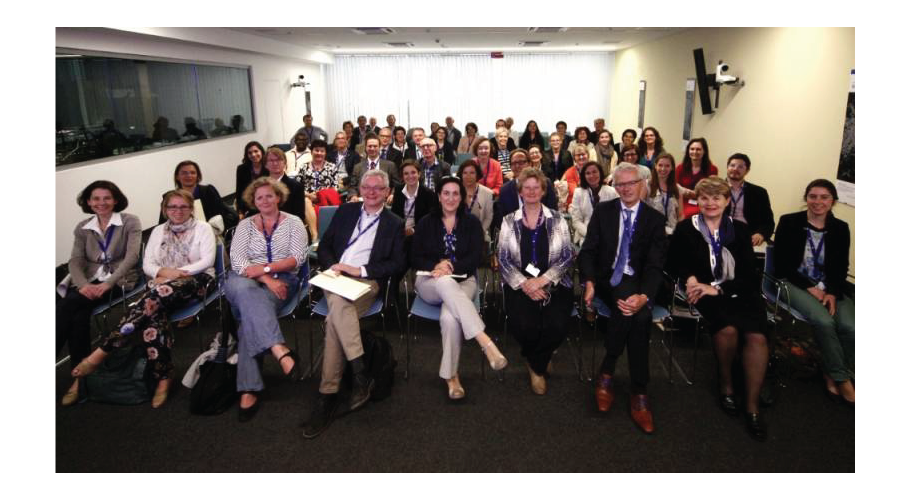
2015 was also the year when Dr Laura Fernández Celemín became EUFIC director, who is still leading EUFIC to this day.
In order to counter misreporting of on topics like consumer rights, food safety and quality, as well as nutrition and health in the media, EUFIC launched the Speaking up for Science Action Network, SuSAN, bringing together a group of European experts to comment on fake news and misinformation.
EUFIC also expanded its presence and promoted its content, translated into Arabic, within the Gulf region.
2016 – 2020
Consumer-friendly content in a fast-changing environment
2016 marked a turning point in EUFIC’s recent history, starting from a new visual identity, with the EUFIC logo, you know now, and gave a new ‘look and feel’ to the website design.
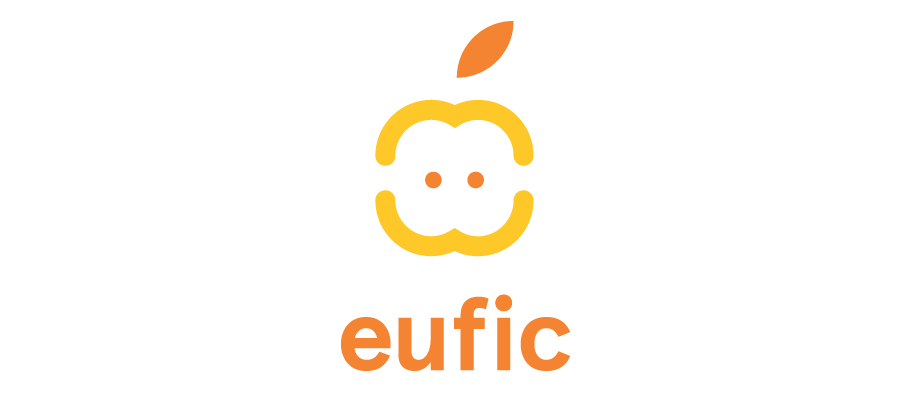
Alongside the new look, EUFIC also updated its vision and mission:
New Vision: We believe in a world where people choose to live healthily because they understand how to.
New Mission: We offer accessible, appealing and actionable science-based information on food and health to inspire and empower healthier and more sustainable food and lifestyle choices.
EUFIC partners in the EIT FOOD consortium proposal to future-proof our food systems.
Another account joined EUFIC’s social media collection, with the Twitter account @SciFoodHealth. This Twitter account publishes mainly news from the EU and EIT projects EUFIC is involved in.
The 2016 Annual Conference revolved around the topics “Understanding consumers and changing behaviour”.
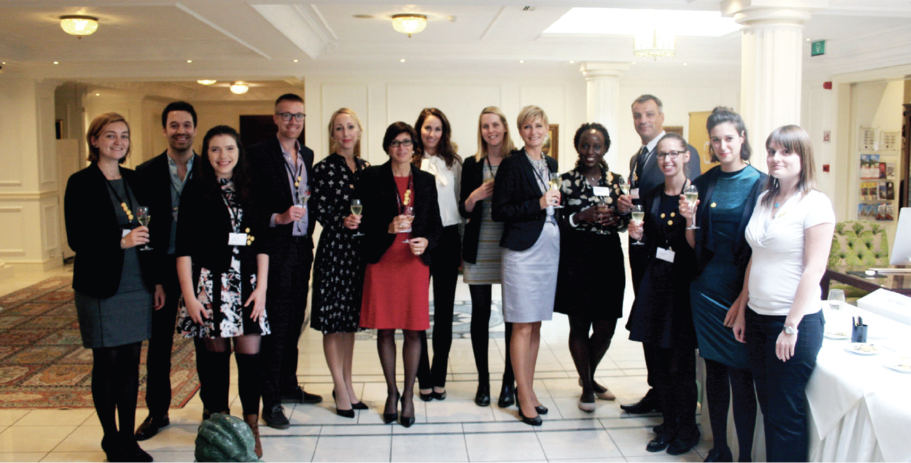
In 2017, EUFIC signed up to the EU transparency register.
Going into a similar direction, the theme of the 2017 annual conference was “Trust in science in the post-fact era”.
EUFIC also intensified its efforts in the fight against fake news, explaining concepts like correlation and causation, hazard and risk, as well as the overall hierarchy of scientific evidence.
Other important topics in 2017 included food waste and childhood obesity.
EUFIC’s membership underwent an expansion in 2017, with WWF, University of Athens and EuroFir joining as Associate Members to represent key perspectives of the food and health debate.
In 2018, EUFIC focused on bringing health professionals and local multipliers closer to its vision. Social media is a core activity, both in this specific aim and for EUFIC in general.
This was also represented in the engagement of influencers as agents of change in the food chain, coordinating the EIT Food Ambassadors programme. In this context, EUFIC launched the event series #EatingtheGap.
Sustainability and food waste were important topics in 2018, amongst others through a FAO collaboration on Global Initiative on Food Waste and Loss.
Reaching out to more countries via national foundations, EUFIC enlarged its network of partners across the continent, which resulted for example in a collaboration with the Slovenian Nutrition Foundation (NUTRIS), also a EUFIC Associate member.
As website traffic increased by 69% in 2019 compared to the previous year, reaching over 2 million page views, it became increasingly complex to produce content “for Europe” as a whole. Collaborations with leading organizations at national level is crucial to reach Europeans via digital campaign.
In 2019, EUFIC received the European Association Awards for “Best Digital Campaign” for its “Hungry for Whole Grain” campaign.
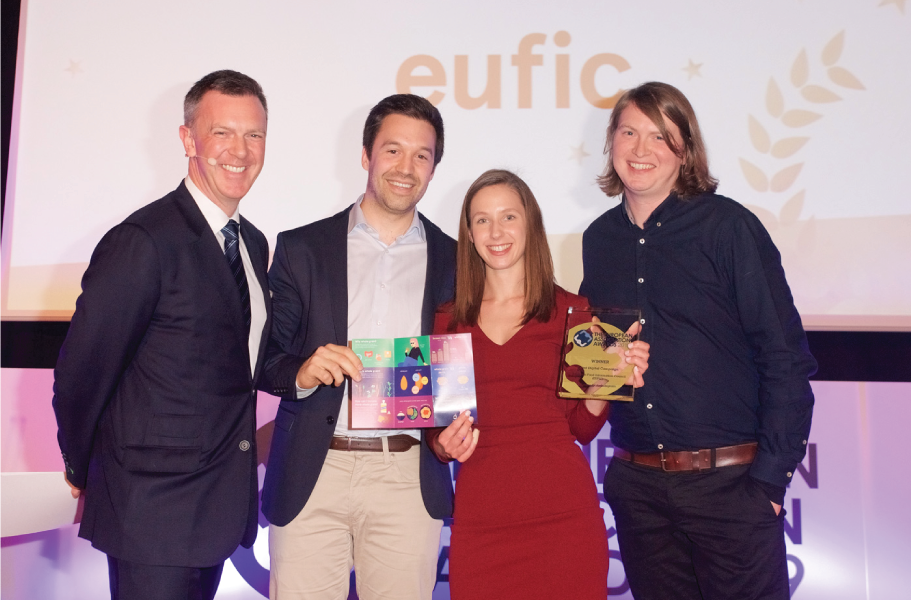
With Instagram, EUFIC expanded its online presence to yet another popular social media outlet in 2020, reaching as many as 10,000 followers in less than a year
In 2020, we celebrate 25 years of EUFIC.
In these 25 years, we have published 107 scientific publications, 59 of which are peer-reviewed. We are proud of having built a thirty-strong team of passionate professionals with a variety of backgrounds, from digital communication, to nutrition, biology and consumer science.